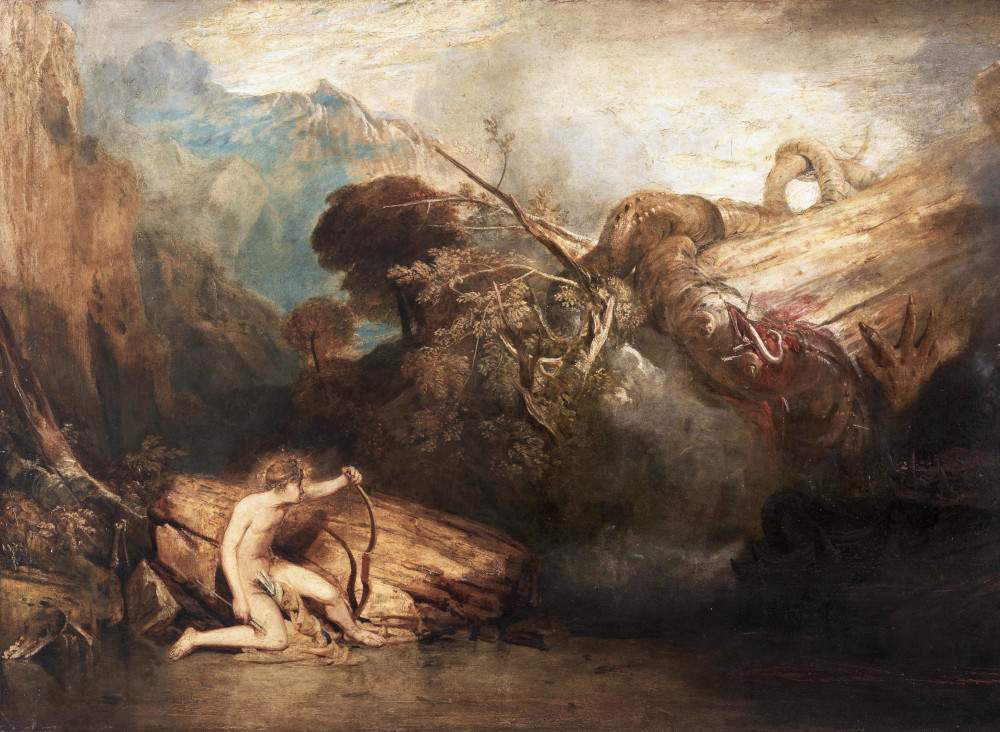William Turner stars in fall exhibition at the Reggia di Venaria
From October 13, 2023 to January 28, 2024, the Reggia di Venaria will host the exhibition Turner. Landscapes of Mythology, curated by British art historian Anne Lyles, thus continuing the prestigious collaboration with the Tate UK after last year’s exhibition dedicated to John Constable.
The exhibition will be set up on the second floor of the Rooms of the Arts and will present a selection of some 40 works from the prestigious British institution, in which Turner expresses not only his predilection for landscape painting, but also his passion for themes related to classical Greek and Roman mythology. In the ten rooms in which the exhibition will be developed, visitors will find both the large oil paintings on canvas, made by Turner to be exhibited at the Royal Academy in London, and the watercolors and sketches in which the artist manifests with extreme freedom and spontaneity his romantic vision of Nature and Myth.
Among the world’s best-known and best-loved British artists, William Turner became famous for his landscape paintings, where Nature is conceived in the context of an aesthetic of the Sublime, with thick fogs, sea storms and natural phenomena that instill fear in man and at the same time attract. Turner established himself internationally in the early nineteenth century by painting large paintings for major official exhibitions, in which he depicted scenes from the Bible, classical literature, and mythology still influenced by the style of his celebrated French predecessors, such as Nicolas Poussin and Claude Lorrain. Turner became passionate about the characters that populated the world of mythology (the battles between heroes and monsters; the love stories of Ovid, Virgil, and other classical authors), studying closely at the National Gallery in London the paintings of the Old Masters.
Also, during his early years as a student at the Royal Academy, he learned to faithfully reproduce, in pencil or chalk, casts of the most famous statues of the classical world, such as the Apollo of Belvedere. Further influencing his paintings of classical mythology was Richard Wilson, a British artist who lived for a long time in southern Italy, between Rome and Naples, in the second half of the 18th century. His canvases were populated by figures from classical or mythological times, immersed in idealized landscapes, but heavily influenced by real places he had visited. Turner’s desire to see Wilson’s Italian landscapes from life was not realized until 1819, due to the difficulties involved in traveling to Europe during the Napoleonic wars.
Turner later returned to Italy in 1828 for a longer stay. After these two trips to Italy, Turner used precisely Italian landscapes (real or fictional) as a backdrop for mythological subjects. Some works in the exhibition, such as The Bay of Baiae with Apollo and the Sibyl (1823) (The Bay of Baiae with Apollo and the Sibyl), document how mythological subject matter is treated by Turner with increasing detail and historical awareness. The background of Roman ruins and the figure of the Cumaean Sibyl, well represent the themes the artist held most dear: beauty and decadence, glory and decline, the fragility of life and the fall of empires.
For info: lavenaria.it
Pictured: William Turner, Apollo Killing Python.
 |
| William Turner stars in fall exhibition at the Reggia di Venaria |
Warning: the translation into English of the original Italian article was created using automatic tools. We undertake to review all articles, but we do not guarantee the total absence of inaccuracies in the translation due to the program. You can find the original by clicking on the ITA button. If you find any mistake,please contact us.





























